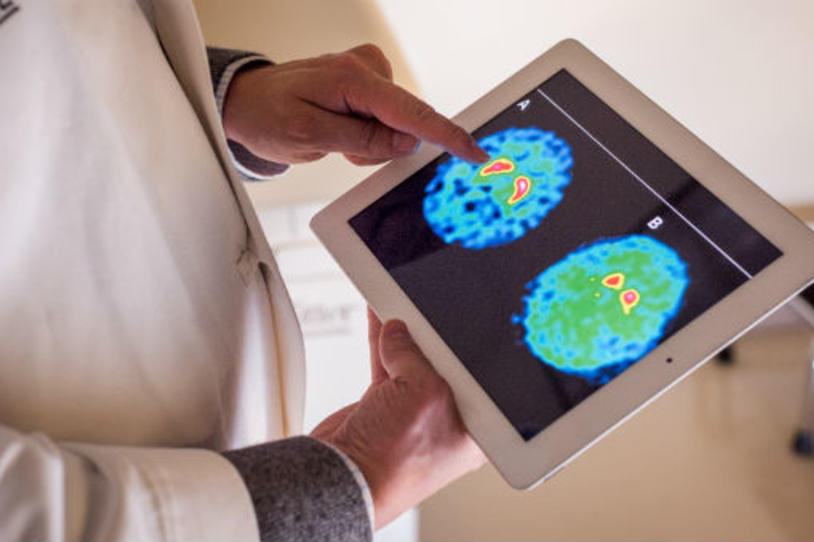
The Michael J. Fox Foundation funds promising Parkinson's disease (PD) science to ensure new ideas flow into the pipeline and drive urgently needed breakthroughs for people living with the disease. Through open funding programs and staff-directed grants, the Foundation speeds efforts to grow our understanding of Parkinson's biology and clinical experience, measure PD pathology and progression, and develop therapies to alleviate symptoms and slow or stop disease.
In the fourth quarter of 2017, we funded projects targeting important Parkinson's-associated proteins (alpha-synuclein, LRRK2) and genes [PARK2 (parkin), PINK1 and GBA1], which represent promising routes to slow or stop disease. We also supported projects using cutting-edge technologies to learn more about Parkinson's, objectively measure the disease and test new treatments. Click through from the links below to read more on these projects.
For a full list of MJFF-supported projects, visit our funded grants page.
Diagnosing and Measuring Parkinson's
Objective measures of disease, or biomarkers, could help diagnose, track and treat Parkinson's and transform therapeutic development for PD.
- International Study of Parkinson's-related Changes in Brain Pathways Using Imaging
Neda Jahanshad, PhD; University of Southern California, Marina del Rey
- Analyzing Parkinson's Progression Markers Initiative Data to Identify Subtypes of Parkinson's Disease
Fei Wang, PhD; Weill Cornell Medicine, New York
New and Better Disease Therapies
Parkinson's lacks a proven therapy to slow or stop progression and people living with the disease today need more options to manage symptoms. Experts are looking to plasma proteins ("young blood") and immune cells as new routes to address these urgent needs.
- Blood Proteins for the Treatment of Parkinson's Disease
Sam Jackson, MD, MBA; Alkahest, Inc., San Carlos, California
- Using Immune Cells to Treat Parkinson's Disease
Saar Gill, MD, PhD; University of Pennsylvania, Philadelphia
Genetic Links in PD
Understanding genetic similarities and differences in people with and without Parkinson's can help uncover risk factors for Parkinson's and advance potential therapies faster.
- Using Parkinson's Progression Markers Initiative Data to Link Changes in the PINK1/PARK2 (Parkin) Genes with Parkinson's Disease
Owen A. Ross, PhD, and Wolfdieter Springer, PhD; Mayo Clinic, Jacksonville, Florida
- Making Changes in the Parkin Gene to Activate the Protein Parkin
Jean-Francois Trempe, PhD; McGill University, Canada
- Study of How LRRK2 Mutations Affect Cellular Processes that Could Lead to PD
Scott F. Sneddon, PhD, JD; Sharp Edge Labs, Inc., Pittsburgh, Pennsylvania
- Searching for the Cause of Parkinson's Disease in People with GBA Mutations
Clemens Scherzer, MD; Brigham and Women's Hospital, Harvard Medical School, Boston
- LRRK2 Activity and Dyskinesia
Michael G. Kaplitt, MD, PhD, and Roberta Marongiu, PhD; Weill Cornell Medicine, New York
Technology and Discovery Tools
Advancements in technology and scientific tools can help investigators overcome obstacles and accelerate therapeutic timelines for Parkinson's.
- Using Organs-on-Chips to Test the Safety of New Drugs for Parkinson's Disease
Geraldine A. Hamilton, PhD; Emulate, Inc., Boston
- Stem Cells with Different Amounts of Alpha-synuclein as a Drug Discovery Tool
Birgitt Schuele, MD; Parkinson's Institute and Clinical Center, Sunnyvale, California
- Predicting the Risk of Parkinson's Disease with a Mathematical Formula
Michael G. Schlossmacher, MD; Ottawa Hospital Research Institute, Canada
- Developing Software to Analyze Parkinson's Symptom Data Collected Using Wearable Technology
George Roussos, MSc, PhD; Birkbeck College, University of London, United Kingdom
- Using "Big Data" Methods to Inform Parkinson's Clinical Trials and Outcomes
Jacquelyn Cragg, MPH, PhD; University of British Columbia, Canada, and University of Zurich, Switzerland